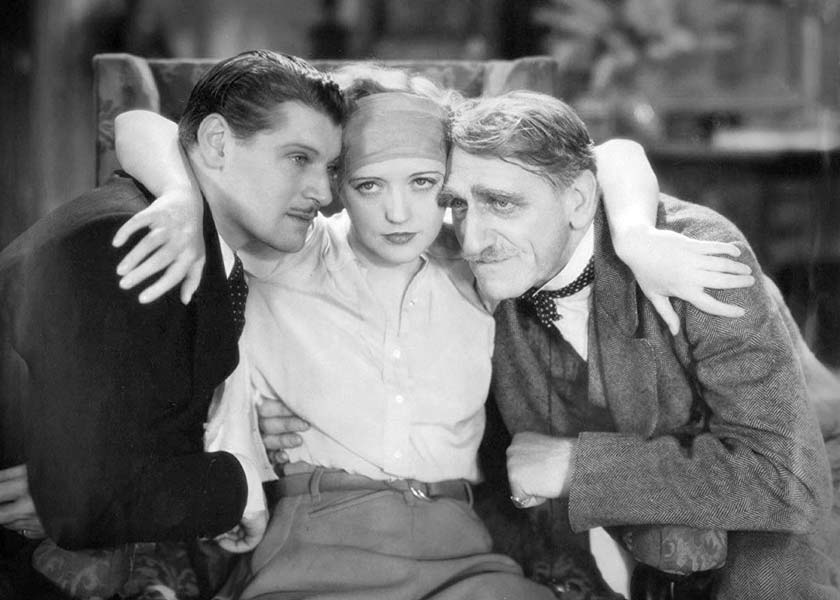Synopsis
Sir Basil Algernon Winterton (Smith), although never married, has had liaisons
with many women. From these associations, he fathered three children, now adults,
whom he has never met. His personal assistant, John Ashley (Forbes), urges him to
become acquainted with his children and invite them to live with him in his
palatial residence. The visit of his children brings out fatherly feelings in Sir
Basil. He is especially fond of Antoinette Tony
Flagg (Davies), the
daughter of the one woman Sir Basil professes to have loved. However, after she
learns that Sir Basil's real daugther died as a child and that she is not related
to him, Tony conceals the truth from him because of their mutual fondness. Sir
Basil is disturbed when he finally discovers the deception, feeling that Tony was
interested only in inheriting his money. After Tony leaves to participate in a
dangerous attempt to fly the Atlantic, he realizes that he loves her like a
daughter, and sends John to bring her back. Before John arrives, the plane
crashes. Fortunately, Tony is only slightly injured, and she and Sir Basil are
happily reunited. Tony plans to stay in England and marry John.
Discussion
The film is derived from an eponymous stage play that had been produced on Broadway in 1928, also starring C. Aubrey Smith as Sir Basil. The story is an example of Pre-Code morality. The casual references that Sir Basil makes to the women with whom he has mated, including keeping a ledger with his lover's names and the dates of their trysts (about which no one is shocked), and his casual approach to his illegitimate children — and their nonchalant response to being bastards — would not have been acceptable after active enforcement of the Motion Picture Production Code begin in 1934. C. Aubrey Smith, who had performed the part over 200 times on Broadway, is relaxed and natural before the camera. Marion Davies' acting is adequate; however, she is too old to play a youthful jazz baby. Ralph Forbes is acceptable in his part, if somewhat stiff. A young Raymond Milland, in his fourth credited film role, plays one of Sir Basil's illegitimate offspring.
Films with similar themes released a few years after The Bachelor Father, such as The Bachelor Mother (1939) and Her Sister's Secret (1946), had to be significantly more nimble — and devoid of suggestiveness — to avoid difficulties with the rigid Production Code.
Films produced during the brief Pre-Code Hollywood period from 1930-34 (before enforcement of the the Motion Picture Production Code restricting profanity, violence, sexuality and cynical content from films) include Blondie of the Follies, Employee's Entrance, Hat Check Girl, A House Divided, The Kiss Before the Mirror, Ladies They Talk About, Laughter in Hell, The Maltese Falcon, Safe in Hell, She Had to Say Yes and Ten Cents a Dance.
Further Reading

